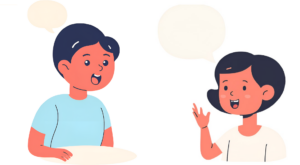
What is DLD?
Developmental language disorder (DLD) is a condition where children have long-term challenges talking and/or understanding words. Children with DLD may have lots of ideas but find it hard to put their ideas into words and understand what other people say to them. Their difficulties can be hard to spot and may be ‘hidden’ for a long time. (Speech and Language UK)
- It affects approximately 2 children in a class of 30
- DLD can sometimes be subtle or hidden and may be mistaken for other things, e.g. behaviour difficulties, laziness, general learning difficulties
- DLD is not caused by parents, emotional difficulties or other medical genetic conditions associated with language difficulties, such as ASD or Down Syndrome
- Children with DLD may have other difficulties, such as Dyslexia or ADHD
- Remember that DLD may not be obvious. Where children are presenting with social, emotional and mental health needs, literacy difficulties, or other learning difficulties, consider language

Children with DLD can have difficulties with:
- Understanding instructions and questions
- Learning and retaining vocabulary and concepts
- Constructing spoken sentences
- Sequencing and telling stories/ retelling events
- Finding the right words to say at the right times
- Understanding non-literal language, idioms, words with multiple meanings
- Using newly taught vocabulary
- Organisation skills and retention of information
- Working memory
- Explaining incidents in a clear and structured way
- Joining in game that have rules (because these are explained using language)
- Making friends and interacting with other children
- The increased academic and language demands of secondary school, alongside social pressures, make the secondary years particularly difficult for students with DLD
- Children with DLD may have strengths in other areas, such as art, P.E. or music, which rely less on language
How can you help?
- Say your child’s name before asking questions or giving instructions, so that they know when to listen
- Use simple language and repeat new words many times, to help your child to learn and remember them
- Talk slowly and pause frequently, to allow time for your child to process what you are saying
- Use photos and gestures to support your child’s understanding and talking
- Try to talk about the ‘here and now’, rather than things the child is not currently doing
- Help your child to learn skills to join in with other children, e.g. playing turn taking games that encourage listening and talking
- Use visuals (e.g. calendars, objects, maps, checklists) as you talk, to help them understand
- Help them to manage their emotions at home, e.g. have a place to calm down and, during calm times, talk about the emotions they are feeling
More information and useful links
https://www.afasic.org.uk/support-for-dld/
https://www.facebook.com/people/DLD-Together/100089284846400/
Content out of date? Information wrong or not clear enough? Report this page.
